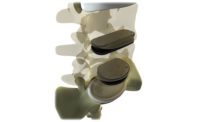COPIAGUE, NY-Amid growing concerns about global warming and foreign oil dependency, Farmingdale State College (FSC, Farmingdale, NY) has been engaged in research to help make energy-efficient fuel cells more durable, cost-effective and commercially viable. As part of that research, which includes a recent U.S. patent for a bipolar metal plate proton exchange membrane fuel cell, FSC has been using Mark-10 Corp.’s (Copiague, NY) test equipment in its mechanical engineering, manufacturing engineering and facility management technology departments, as well as in its Institute for Research and Technology Transfer (IRTT).
FSC is using a Mark-10 motorized test stand, digital force and torque gages and torque test stand for contact resistance measurement and torsion measurement in its labs.
According to Jeff Hung, adjunct professor and technical specialist at FSC, these instruments are used for both funded research and student experiments to test the properties of different materials, specifically compression and torsion.
For its fuel cell experiments, FSC measured the interfacial contact resistance (ICR) between the gas diffusion layer (GDL) and various bipolar plate materials. “Mark-10’s equipment enabled us to very precisely test and easily measure the contact resistance between the plates as we applied a certain pressure,” says Hung. “The results were very accurate, and we were able to get consistently repeatable readings.”
Get our new eMagazine delivered to your inbox every month.
Stay in the know with Quality’s comprehensive coverage of the manufacturing and metrology industries.
SIGN UP TODAY!Copyright ©2024. All Rights Reserved BNP Media.
Design, CMS, Hosting & Web Development :: ePublishing


